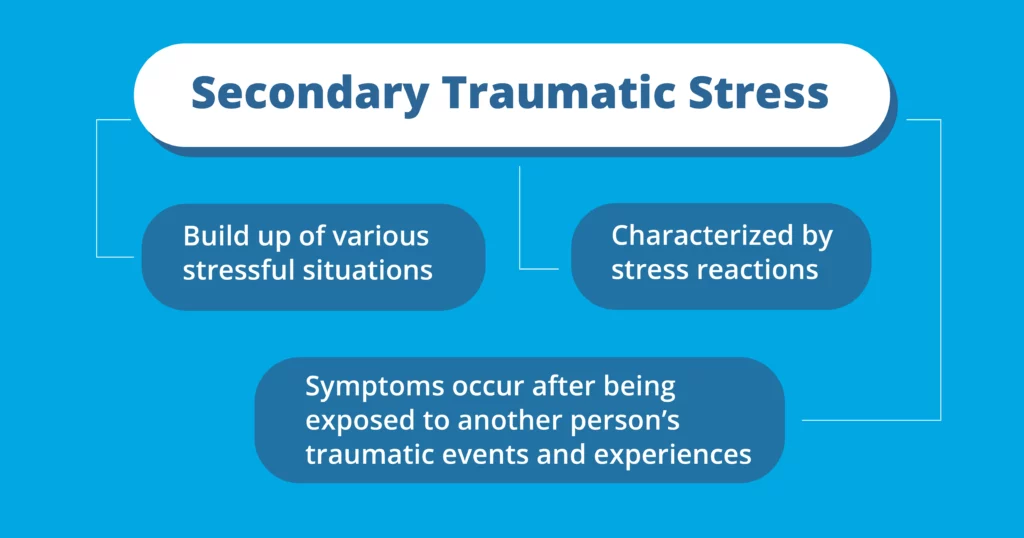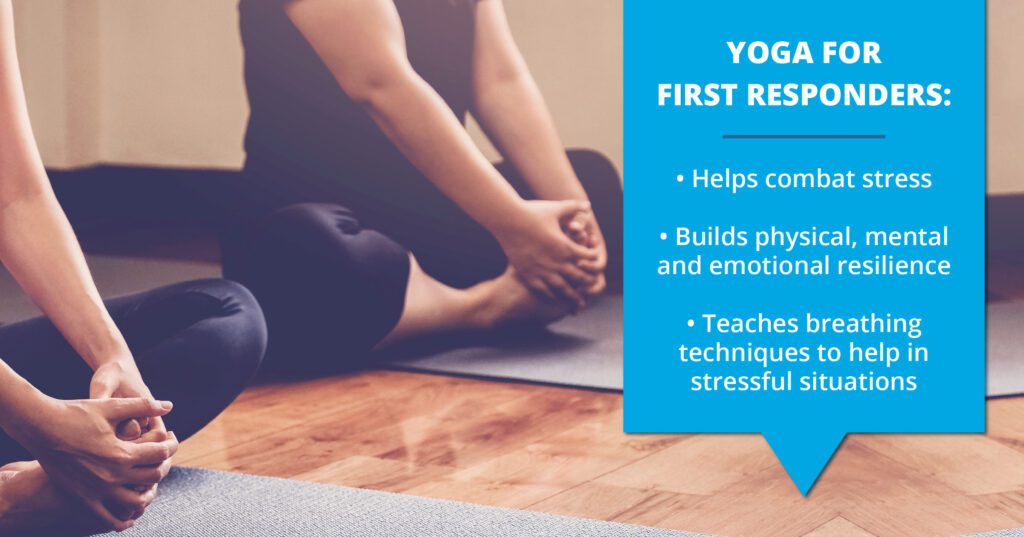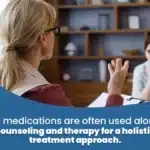Stress, PTSD, depression, substance use disorders, and suicide are common behavioral health problems experienced by first responders. If you are a first responder struggling with one or more of these issues or know someone else who is, get addiction treatment right away.
Emergency responders, including police officers, firefighters, and paramedics, experience higher rates of substance and alcohol abuse as well as mental health concerns compared to the general population. These individuals frequently get exposed to stressful, dangerous, and traumatic situations that can make it challenging to manage a healthy mood, promote a work-life balance, and foster positive coping.
Many treatment facilities specialize in helping first responders combat and overcome these serious, trauma-related health conditions. Here are eight resources that can help you and other first responders work toward recovering from work-induced addiction and mental health disorders.

1. For the Frontlines
Many emergency responders experience stress during a crisis. Over time, this stress can build up to cause secondary traumatic stress. According to the CDC, secondary traumatic stress is characterized by stress reactions and symptoms that occur after being exposed to another person’s traumatic events and experiences, rather than from direct exposure to a traumatic event.
For the Frontlines is a service that provides fast, free crisis counseling via text message to first responders who are working on the frontlines during the COVID-19 pandemic. First responders dealing with secondary traumatic stress or anxiety, fear, or isolation can text FRONTLINE 24/7 using the code 741741 to receive support instantly.
2. First Responder Canine (FRK9)
Behavioral health conditions, including PTSD, affect an estimated 30% of first responders compared with 20% of the general population, reports the Substance Abuse and Mental Health Services Administration (SAMHSA). You can develop PTSD after experiencing a shocking, frightening, or dangerous event.
Nearly all first responders are at risk for PTSD due to the nature of their jobs. Getting support from peers, friends, and family members can often reduce the risk of PTSD, as can coming to work prepared to face and deal with stressful and traumatic situations.
If you are a first responder suffering from PTSD, consider checking out the services offered by a non-profit organization called First Responder Canine (FRK9). FRK9 provides dedicated and highly trained service dogs to first responders in recovery from PTSD and other life-altering conditions.
To qualify for a specially trained service dog from FRK9, you must be a retired first responder with a disability that has impacted your independence and quality of life. Dogs from FRK9 are trained to retrieve items and open and close doors. They also can pick up on stress cues and provide you with the comfort you need to reduce the severity of your PTSD symptoms.
FRK9 encourages first responders interested in getting a service dog to contact its website for more information. There may be times when the waiting list is full, but checking back on the website regularly can allow you to sign up when service dogs become available.
3. Talkspace
Depression is up to five times more common in first responders than in the general population, according to a report from the Ruderman Family Foundation. Depression can develop over time in first responders who experience repeated exposure to traumatic and stressful events.
Talkspace is an online therapy company that provides first responders with access to licensed therapists and mental health specialists who treat depression. Talkspace and its partners cater mostly to healthcare workers on the frontlines of the COVID-19 pandemic, including doctors, nurses, and social workers, though all first responders are welcome to use this service.
Therapists on Talkspace offer free mental health tips, personalized licensed therapy, and virtual psychiatry services for depression and other mental health disorders. The service is currently offering a free COVID-19 Anxiety Relief Program with all subscriptions to help you and other first responders cope with depression, stress, and anxiety related to the pandemic.
4. Disaster Responder Assets Network (DRAN)
Disaster Responder Assets Network (DRAN) offers a wide range of mental health services to first responders who need help coping with stress and trauma related to COVID-19 work duties. DRAN offers free online support groups for healthcare workers over ZoomAll meetings are confidential and limited to first responders and healthcare workers directly involved with the COVID-19 pandemic.
Zoom meetings with DRAN are limited to only 15 participants and are led by healthcare professionals trained to offer peer support services. Meetings are not recorded or saved, and participants must abide by community rules that discourage cross-talk and arguments.
In-person support group meetings with DRAN are also available, but only for first responders in Northern California. Any first responder who wants to learn more about DRAN and its services can contact the organization directly at (707) 200-3765.
5. Suicide Prevention Resource Center (SPRC)
Suicidal ideation and suicide are serious complications of depression and PTSD. SAMHSA reports that rates of suicide are significantly higher among emergency responders on behalf of the stressors, trauma, and mental health issues they struggle with regularly.
The Suicide Prevention Resource Center (SPRC) offers resources for first responders who are at risk for suicide as a result of exposure to traumatic emergencies. The SPRC also offers training courses to first responders who have co-workers at risk for suicide. These training courses teach you how to help your co-workers effectively cope with PTSD, stress, and other factors that may lead to suicide.
Visit the SPRC website for more information on its services and activities related to suicide prevention for first responders, or call its suicide prevention lifeline at 1-800-273-TALK if you need help and support right away.
6. American College of Emergency Physicians (ACEP)
Many first responders experience periods of burnout throughout their careers. Burnout is characterized by feelings of extreme overwhelm and exhaustion. Burnout is likely to occur if you work long hours, especially over several days after a major disaster like Hurricane Katrina or 9/11.
The American College of Emergency Physicians (ACEP) offers field guides and a countless number of resources for first responders suffering from burnout and other mental health conditions. If frustrated, overwhelmed, and tired after a period of working on the front lines, the ACEP can help you determine whether you’re suffering from burnout or secondary traumatic stress and provide you with steps on what to do next. It also gives you self-care tips on how to reduce your risk for burnout and take care of your overall health and well-being while on the job and outside of work.
7. YogaShield® Yoga for First Responders
Self-care is essential for a law enforcement officer, firefighter, or corrections officer, as it can reduce your risk for a substance use disorder or mental illness. Implementing healthy self-care techniques into your lifestyle can help you achieve a healthy work-life balance and keep you safe from the harms related to suicide and substance misuse.
YogaShield® Yoga for First Responders is a non-profit organization that teaches yoga to first responders to improve how these individuals handle the stress of their demanding jobs. If you are interested in using yoga to combat stress, consider this service catering to first responders.
The yoga training, techniques, and drills taught by YogaShield are job-specific. This service can help you process the inevitable stress you can expect to face throughout your career and build mental, physical, and emotional resilience. In 2019 alone, before the COVID-19 pandemic, YogaShield reached over 150 departments in 35 states and more than 12,000 first responders and military personnel.Yog
YogaShield offers scheduled live classes hosted on Zoom and an on-demand service called Cyber Academy, offering shorter classes that train you on tactical breath work, physical drills, and ways to reset your neurological system. To join YogaSheld classes, the service invites you to fill out its online contact form and check back regularly for new classes.

8. The Substance Abuse and Mental Health Services Administration (SAMHSA)
First responders who suffer from addiction often need specialized treatment that focuses on addressing trauma and other common problems related to their jobs. Detox, individual therapy, and group therapy in a residential or intensive outpatient program can help you, and other first responders achieve long-term recovery from addiction to drugs and alcohol.
SAMHSA is an agency under the U.S. Department of Health and Human Services that aims to reduce the impact of substance abuse and mental illness on America’s communities—including the first responder community.
When browsing rehab centers listed on SAMHSA, look specifically for treatment centers that offer trauma-focused cognitive-behavioral therapy (CBT). Trauma-focused CBT can teach you how to replace harmful, negative thoughts and perceptions with those healthier and more positive, and that can help you overcome the trauma.
Also, look for a rehab center willing to develop a customized treatment program just for you based on the root causes of your addiction and mental illness. For example, if you are a police officer suffering from PTSD and alcohol addiction, a quality treatment plan may include alcohol detox, trauma-focused CBT, and support groups limited only to first responders and their families.
Get Confidential, Proven Recovery at The Haven
The Haven is a premier drug and alcohol detox center that can help you or a loved one recover from drug and alcohol dependence. We also offer a residential health program for first responders that includes trauma-focused CBT, dual diagnosis therapy, and other behavioral therapies that can be customized for you based on your unique situation.
Contact us today to learn more about your treatment options and begin your recovery from addiction.






